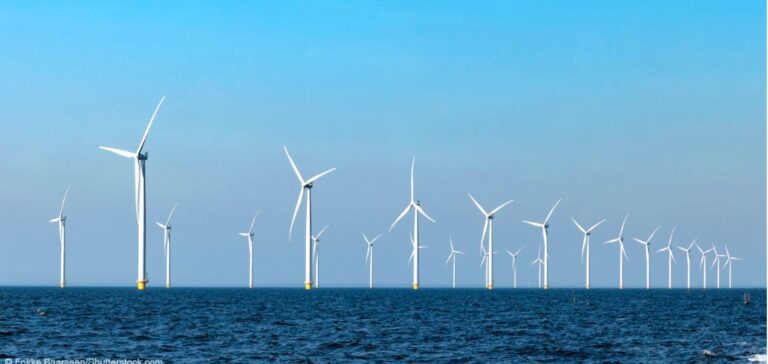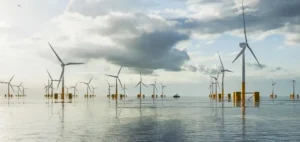Nova Scotia, a Canadian province, has set a goal of offering leases for 5 GW of offshore wind energy by 2030. This goal will support its nascent renewable hydrogen industry.
Development of new offshore wind projects
Tim Houston, Premier of Nova Scotia, says:
“Setting this goal sends a clear signal to the world that Nova Scotia is open for business. It is becoming an international leader in the development of offshore wind energy and renewable hydrogen. […] In doing so, we are seizing every opportunity to not only combat global climate change, but to create green jobs.”
A competitive bidding process will be initiated. The provincial and federal governments will collaborate on this. The first call for tenders will take place in 2025. After reaching the 5 GW target, tenders will be based on market opportunities.
The most promising use of offshore wind power is in the production of renewable electricity to produce renewable hydrogen. The aim is to use this hydrogen locally, but also to export it. Offshore wind is also another option to help Nova Scotia and Canada meet their future clean electricity needs.
Nova Scotia, future leader in renewable hydrogen?
The province also announced that it is developing a renewable hydrogen action plan. It will be published in 2023. For example, Nova Scotia is targeting Net Zero by 2050. The plan will describe the role that renewable hydrogen can play in the transition to clean energy. It will also outline the steps the government will take to build this industry.
Premier Houston will attend the WindEnergy Hamburg and H2 Expo and Conference in Germany later this month. His presence is intended to promote Nova Scotia as a provider of safe, clean energy. This image should help support investment and development of the emerging renewable hydrogen market.
Nova Scotia has many advantages that combine to make it a desirable location for the production and export of renewable hydrogen.
It has a uniquely large continental shelf that is ideal for floating and fixed wind platforms. In addition, it has an experienced and competitive marine service and supply chain. Finally, it benefits from the expertise of university researchers with in-depth knowledge of clean technologies.
Nova Scotia’s offshore wind industry will be developed in consultation with stakeholders, including fishers.






















